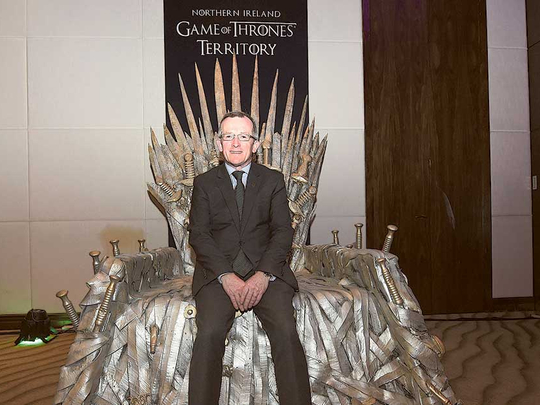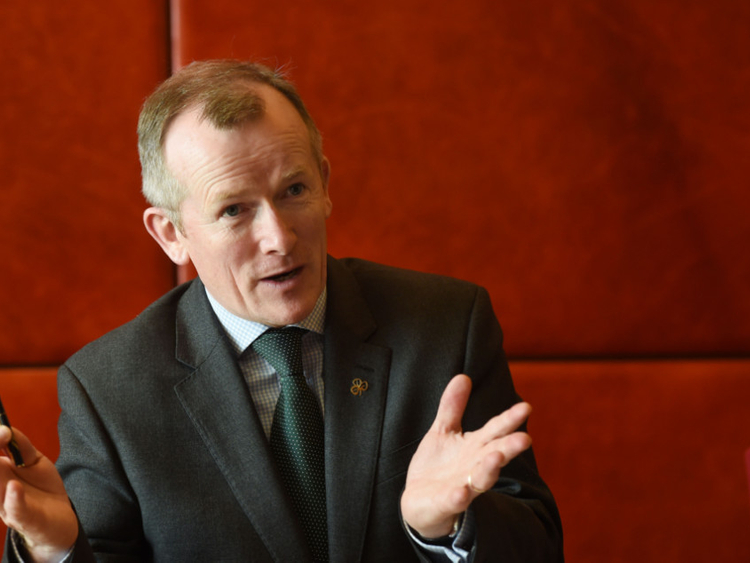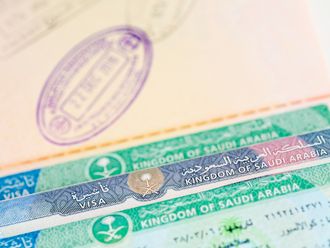
Dubai: Three months after its major source market voted to leave the European Union, the island of Ireland is increasing its focus on bringing in more visitors from Asia such as high-spending Arab Gulf travellers.
The uncertainty of the economic implications of Brexit has generated concern in Europe, including for the tourism industry, with some forecasting the number of outbound British travellers to decline in 2017.
The pound has dropped around 11 per cent against the euro since the June 23 vote, meaning that Eurozone countries such as the Republic of Ireland, are now more expensive for British travellers.
“Competitiveness and value for money ... is crucial in countering the impact of Brexit,” Niall Gibbons, chief executive of Tourism Ireland, told Gulf News in an interview in Dubai on Sunday.
Visitors from Great Britain accounted for around 40 per cent of the 8.6 million overseas visitors to Ireland in 2015 and for 24 per cent of the €4.2 billion those travellers spent that year, according to Tourism Ireland, the tourism body responsible for the overseas marketing of tourism in Northern Ireland and the Republic of Ireland.
Spend more
Amid the uncertainty, Tourism Ireland is looking to build on developing markets like the UAE as well as India and China, which at present benefit from single UK-Ireland visit visa schemes.
“We’re keen to grow those because they stay even longer and spend even more than the typical visitor,” Gibbons said.
There were 65,000 visitors from the six Gulf countries, made up of citizens and expatriates, to the island of Ireland in 2015, up 18 per cent from the pervious year, according to Tourism Ireland. It is unclear if those schemes would change once the United Kingdom does leave the European Union.
“We’re keen now to develop the Emirati market,” Gibbons said. “There is a very, very strong luxury product in Ireland.”
Gibbons is in the UAE this week meeting with local travel operators and airlines in a bid to raise awareness of Ireland’s tourism potential. From the UAE, he will travel to India to hold similar meetings.
There are three daily direct flights connecting the Gulf to the Republic of Ireland, a double-daily Emirates service from Dubai to Dublin and a daily Etihad Airways service from Abu Dhabi to Dublin. Qatar Airways, which holds a 20 per cent stake in the owner of Irish national carrier Aer Lingus, has said it would start flights to Dublin, and is considering launching flights to Belfast in Northern Ireland.
Strong brand
The island of Ireland expects 10 million visitors this year, greater than its population of about 6.5 million. The majority of its visitors have historically come from North America, where there is a strong Irish diaspora, and mainland Europe in addition to its top market Great Britain.
Ireland, like a handful of southern European and Scandinavian countries, has seen its tourism industry grow after a wave of terror attacks in Europe in Turkey over the past year have deterred travellers from heading to Western Europe.
“The brand is very, very strong. Ireland is perceived as a very safe and secure destination,” Gibbons said.
The filming of hit television series, Game of Thrones, and the latest Star Wars movie — Star Wars: The Force Awakens — filmed on the island have increased its ability to reach into new markets.
Tourism Ireland has collaborated with American television channel HBO to market Northern Ireland as a “Game of Thrones territory.”
“We’re only starting to realise the benefits of it,” Gibbons said. “It does bring you into an audience you haven’t had a conversation with.”













